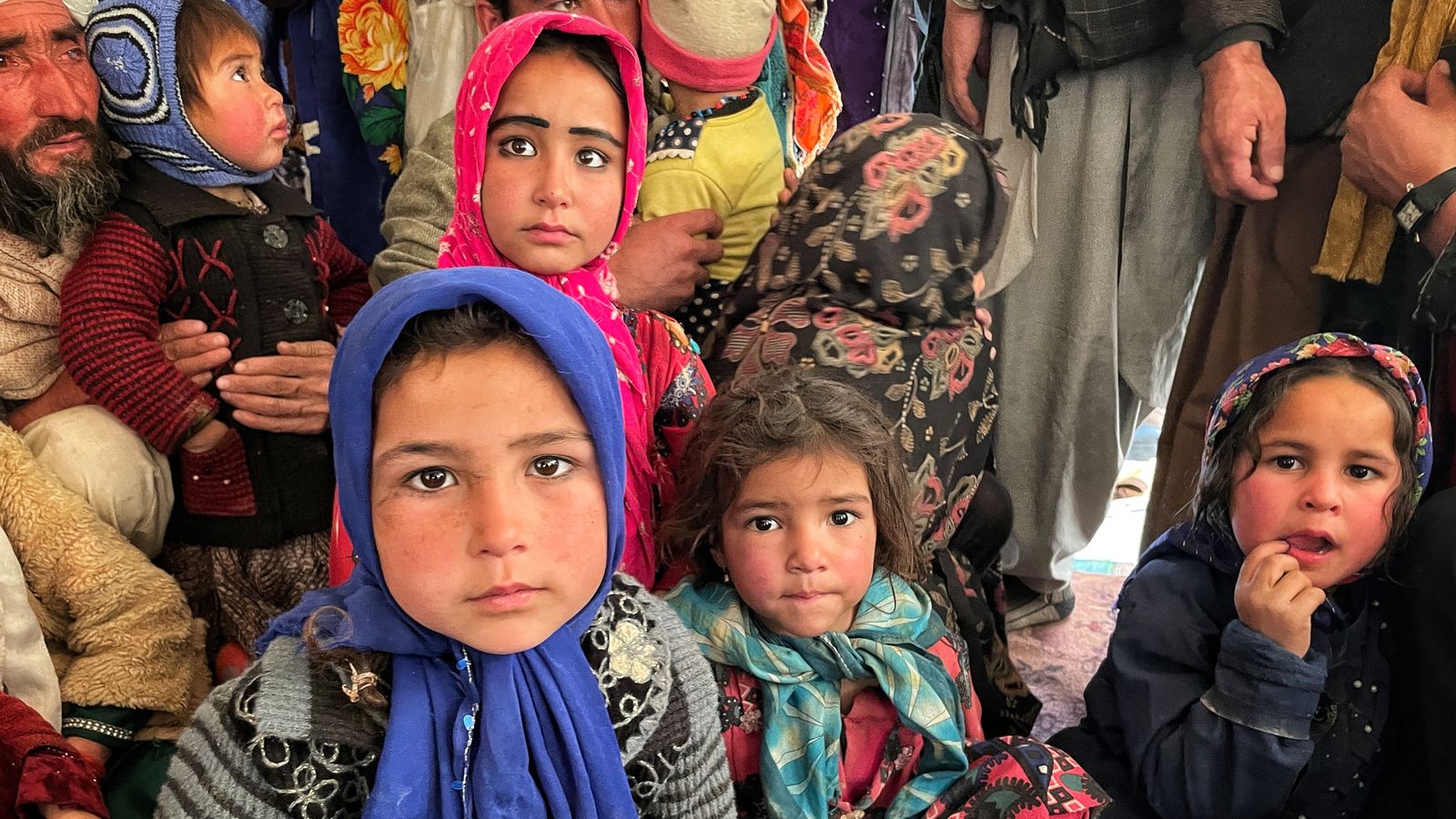Billions of dollars of Afghan assets frozen in the US are to be used to fund vital humanitarian relief in the troubled country.
US President Joe Biden is to sign an order that will call on American financial institutions to grant access to the $3.5bn (£2.58bn) to provide help for the people of Afghanistan – as well as creating a trust fund for victims of the September 11 2001 attacks.
Afghanistan’s central bank had deposited the money in New York before the Taliban took control of the country in August as the US military withdrew.
International funding to Afghanistan was suspended and billions of dollars of the country’s assets abroad were frozen.
But now, the White House has said the executive order, due to be signed on Friday, will “provide a path for the funds to reach the people of Afghanistan, while keeping them out of the hands of the Taliban and malicious actors”.
Listen: The plight of Afghans left behind
Read: The freezing of Aghanistan’s assets is a catastrophic tragedy
Afghanistan’s long-troubled economy has been in a tailspin since the Taliban takeover.
Afghanistan: Two journalists and number of Afghan nationals arrested in Kabul, UN says
ISIS-K: US offers two $10m rewards for intel on leader and attack on Kabul airport
Afghanistan crisis: Taliban blames Western sanctions for scenes of starvation in Sky News reports
Please use Chrome browser for a more accessible video player
Nearly 80% of the previous Afghan government’s budget came from the international community.
That money, now cut off, financed hospitals, schools, factories and government ministries.
Desperation for such basic necessities has been further exacerbated by the COVID-19 pandemic as well as health care shortages, drought and malnutrition.
The lack of funding has led to increased poverty, and aid groups have warned of a looming humanitarian catastrophe.
State employees, from doctors to teachers and administrative civil servants, haven’t been paid in months.
Banks, meanwhile, have restricted how much money account holders can withdraw – the equivalent of only £147 weekly.
The Taliban claims the money it invested overseas has been stolen from it.
In criticising the Biden administration for not releasing all the funds to Afghanistan, its political spokesman Mohammad Naeem tweeted: “Stealing the blocked funds of Afghan nation by the United States of America and its seizure (of those funds) shows the lowest level of humanity . . . of a country and a nation.”
A second use for the funds is to compensate 9/11 victims.
The Biden administration says it is still working through the details of setting up a trust fund, an effort the White House says will likely take months to sort out.
Officials said US courts, where 9/11 victims have filed claims against the Taliban, will also have to take action for the victims to be compensated.
The US launched the war in Afghanistan more than 20 years ago after then-Taliban leader Mullah Omar refused to hand over al Qaeda leader Osama bin Laden following the 9/11 attacks on the United States.
Afghanistan had most of its reserves held in the United States. The rest is largely in Germany, the United Arab Emirates and Switzerland.
As of January, the Taliban had managed to pay salaries of their ministries but were struggling to keep employees at work.
They have promised to open schools for girls after the Afghan new year at the end of March, but humanitarian organisations say money is needed to pay teachers.
The United Nations last month issued an appeal for nearly $5bn (£3.68bn), its largest ever appeal for one country, predicting nearly 90% of the country’s 38 million people were surviving below the poverty level of 1.90 dollars (£1.40) a day.
The UN also warned upward of one million children risked starvation.






















